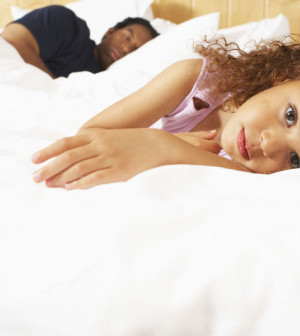- 8 Ways to Increase Dopamine Naturally
- 7 Best Breads for Maintaining Stable Blood Sugar
- Gelatin vs. Collagen: Which is Best for Skin, Nails, and Joints?
- The Long-Term Effects of Daily Turmeric Supplements on Liver Health
- Could Your Grocery Store Meat Be Causing Recurring UTIs?
- Are You Making This Expensive Thermostat Error This Winter?
- Recognizing the Signs of Hypothyroidism
- 10 Strategies to Overcome Insomnia
- Could Artificial Sweeteners Be Aging the Brain Faster?
- Techniques for Soothing Your Nervous System
States May Be Getting Stricter on Child Vaccine Exemptions


Legislative skirmishes over childhood vaccines are still happening in many states, but there are signs of a shift in the United States toward limiting “personal belief” exemptions, a new study finds.
All states require children to receive routine vaccines against diseases such as polio, measles, mumps and whooping cough before starting day care or public school. But most states allow parents to forgo vaccines for religious reasons, and 20 states permit “personal belief” exemptions for parents with philosophical objections.
In the new study, researchers found that although lawmakers in other states have tried to introduce personal belief exemptions in recent years, none has been successful.
On the other hand, three states that allow the exemptions — California, Vermont and Washington — have recently passed laws to curb them. Basically, the states have increased the red tape parents face when applying for an opt-out on philosophical grounds.
“I think the bottom line is that while the advocacy efforts of pro-vaccine stakeholders have been successful in some states, there are still substantial efforts to weaken school immunization mandates,” said study author Saad Omer. “Therefore, those who believe in the value of vaccines need to continue their advocacy efforts in their respective states.”
Omer, an associate professor of global health at Emory University, in Atlanta, and colleagues reported their findings in the Feb. 12 issue of the Journal of the American Medical Association.
An expert not involved in the study called the results “good news.”
“I think what you’re seeing now is the pendulum swinging in the other direction,” said Dr. Paul Offit, chief of infectious diseases at Children’s Hospital of Philadelphia.
Offit said personal belief exemptions got their start in the 1970s and 1980s as a backlash against childhood vaccination mandates.
In recent years, a growing number of parents have been using the exemptions to shun vaccines over safety concerns. In a 2006 study, Omer’s team found that the number of children in states with the opt-out who went unvaccinated for non-medical reasons more than doubled between 1991 and 2004 — from about 1 percent to 2.5 percent.
Vaccine fears were set off in 1998, when a small study linked the measles-mumps-rubella vaccine to autism. That research was later found to be fraudulent, but some parents’ worries over vaccine safety persist.
Despite that, lawmakers seem to be trying to rein in personal belief exemptions, Offit said.
That’s at least partly in response to concerns about disease outbreaks. In 2010, for example, California had an outbreak of whooping cough that sickened more than 9,000 people and killed 10 infants — most of whom were too young to be vaccinated.
In a recent study of that outbreak, researchers at Johns Hopkins University found that whooping cough cases tended to concentrate in areas of the state with the highest rates of personal belief exemptions.
For the new study, Omer’s team looked at a legislative database maintained by the advocacy group Immunization Action Coalition.
The researchers found that between 2009 and 2012, 18 states introduced at least one bill on vaccine exemptions. Most of the bills — 31 in all — were aimed at launching or expanding personal belief exemptions. None of them passed.
There were only five bills intended to restrict the exemptions, but three of them were signed into law.
Omer and his colleagues emphasized that success rate. “All of the legislative efforts to expand exemptions failed,” they said. “However, the majority of bills to restrict exemptions passed.”
Offit agreed. “If three out of five passed, that’s pretty good,” he said.
And although there were many more bills trying to expand personal belief exemptions, Offit said he saw that as “a last flicker, because they all failed.”
“Previous studies have shown that high vaccine refusal rates tend to increase the risk of vaccine-preventable disease in the whole community — including for those who are vaccinated,” Omer said. “So it is in everyone’s interest to ensure that their community has high vaccination rates.”
More information
The U.S. Centers for Disease Control and Prevention has more on childhood vaccinations.
Source: HealthDay
Copyright © 2026 HealthDay. All rights reserved.










